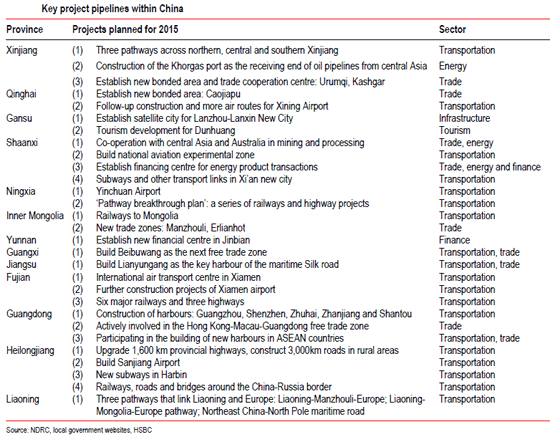By Gareth Vaughan
Ever thought you'd see the day when New Zealand exports to Europe were shipped to the east coast of China and then put on a train bound for Europe?
This, according to Siah Hwee Ang who is the BNZ Chair in Business in Asia at Victoria University, is the type of opportunity China's enormous Silk Road economic project is creating for New Zealand.
"It means quite a lot because we trade a lot with China, we trade a lot with Europe," Ang told interest.co.nz in a Double Shot interview.
"It's not straight forward to say 'what has the link from China to Europe got to do with us?' Actually it has got to do a lot with us because it does allow quicker access (to markets)."
"And if we know the transportation process, or the transportation links in those economies, it really opens up a lot of opportunities for New Zealand products to reach out to those other markets as well (as China)."
Ang says a key factor, from what he can tell, behind the Chinese Government's move to revive the ancient Silk Road trade route as a modern day economic belt, or trade hub, is to get more balance into China's economy by developing the west of the country.
"If you go back to some of the fundamental issues that are happening in China, for example pollution, what you might see is (this is) partially because of the fact that the development has been centred around the eastern part of China. So in many ways a lot of this pollution comes because the economy is so concentrated on major (eastern) cities," says Ang.
"Getting the roads all done to be able to access and help the west of China through trade with Europe and other countries to the west of China is actually the major exercise that we are dealing with here. And that's why there's a huge investment going on there."
The Silk Road project includes the world's longest train journey which sees freight trains running from YiWu on China's east coast through six countries - Kazakhstan, Russia, Belarus, Poland, Germany and France - all the way to the Spanish capital Madrid. Taking about three weeks currently, the journey already takes about half as long as shipping freight, and may quicken as China is looking to use faster trains. (Here's an article on whether a commercial cargo service from China to Spain makes economic sense).
On a scale that probably no other country in the world could, or would, attempt at the moment, Chinese President Xi Jinping last year announced an initial US$40 billion for a "Silk Road fund" to invest in infrastructure and industrial and financial cooperation, that aims to "break the connectivity bottleneck" in Asia. Aside from the overland route, there's also a maritime route linking China's Fuzhou and Guangzhou with ports in Indonesia, Sri Lanka, Kenya and Greece. China's government says the maritime project is, at least in part, aimed at strengthening maritime co-operation between China and the ASEAN (Association of South East Asian Nations) countries.
>"There's a lot of benefits for a lot of different countries," says Ang. "At the same time for us, even though we are far away, there's a lot of this other trade that we can actually do and links that can be established as a result of others doing the work over there."
China is able to work on the project with many countries that western nations, especially the US, would shy away from partly because it's still a developing country like them, Ang suggests. This means it's pitched as the "big brother" among developing countries and there's a greater level of trust than there might be between some of the Silk Road partners and developed countries.
"On the western side of China those are very tough countries to deal with, the Middle East and so on. But if there's a country that can do it it's probably going to be China," Ang says. "China is building infrastructure in other countries to help develop trade."
Below are details from HSBC of major infrastructure projects underway in China this year. And here's a chronology of the initiative so far from Xinhua.

2 Comments
China is also at least as interested in policing shipping lanes and positioning itself (after the US slides further into irrelevance) as Commander of the Sea.
Plus, as this ATimes article http://atimes.com/2015/04/xinjiang-now-the-core-not-the-periphery-of-ch… notes, the Silk Road project also drowns Uighur insurgency in buckets of cash: wealth is a great solvent for dissidence.....
NZ should at lease which countries are likely to get benefit from 'one road one belt', and start to building relationship, starting imports/export protocols on agricultural products etc.

We welcome your comments below. If you are not already registered, please register to comment
Remember we welcome robust, respectful and insightful debate. We don't welcome abusive or defamatory comments and will de-register those repeatedly making such comments. Our current comment policy is here.